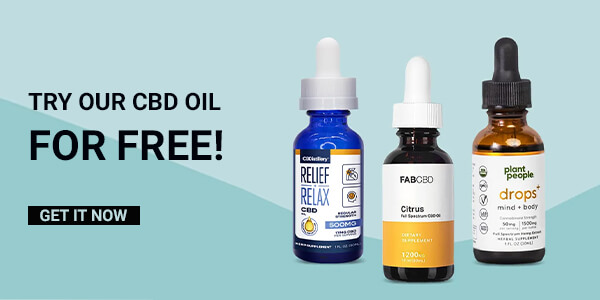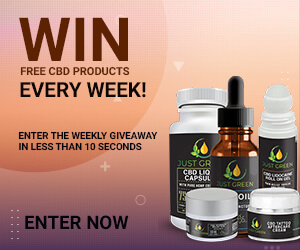In recent years, the cannabis plant has garnered significant attention due to the potential health benefits of its cannabinoids. Two of the most well-known compounds found in cannabis are delta-9-tetrahydrocannabinol (THC) and cannabidiol (CBD). Despite both originating from the same plant, these cannabinoids have distinct properties and effects on the human body. This comprehensive guide aims to explore the differences between THC and CBD, including their chemical makeup, psychoactive effects, medical applications, legal status, and potential side effects. Understanding THC and CBD is essential for anyone considering the use of cannabis-derived products for health or recreational purposes.
Understanding THC and CBD: The Main Cannabinoids in Cannabis
THC and CBD are both cannabinoids found in the cannabis plant (Cannabis sativa), but they have different effects on the body:
- THC (Delta-9-Tetrahydrocannabinol): THC is the primary psychoactive compound in cannabis, responsible for the euphoria or “high” associated with marijuana use. It binds directly to cannabinoid receptors in the brain and nervous system, primarily activating the CB1 receptors.
- CBD (Cannabidiol): CBD is a non-psychoactive cannabinoid, meaning it does not produce intoxication or a “high.” It is primarily extracted from hemp plants and has gained popularity for its potential therapeutic properties, including anti-inflammatory, analgesic, anxiolytic, and neuroprotective effects.
Chemical Makeup: THC vs. CBD
Both THC and CBD have the same molecular formula, C21H30O2, but their atoms are arranged differently, resulting in distinct effects on the body:
- THC: The molecular structure of THC enables it to bind directly to CB1 receptors in the brain and nervous system, producing the characteristic psychoactive effects associated with marijuana use.
- CBD: CBD does not bind strongly to CB1 receptors and does not produce any mind-altering effects. Instead, it interacts indirectly with the endocannabinoid system (ECS), influencing various physiological processes and promoting relaxation and potential therapeutic benefits.
Psychoactive Effects: THC vs. CBD
One of the most significant differences between THC and CBD is their psychoactive effects:
- THC: THC is highly psychoactive, leading to altered perception, mood changes, euphoria, and increased sensory experiences. These effects can be enjoyable for recreational users seeking a “high,” but they may be undesirable for individuals seeking medical benefits without intoxication.
- CBD: CBD does not produce any intoxicating or mind-altering effects. It is well-tolerated by most individuals, making it an attractive option for those seeking potential health benefits without the euphoria associated with THC.
Medical Applications: THC and CBD
Both THC and CBD have demonstrated potential therapeutic applications, although they target different health conditions:
- THC: THC’s medical applications primarily revolve around pain relief, appetite stimulation (useful for patients undergoing chemotherapy), and managing symptoms associated with certain medical conditions.
- Pain Relief: THC’s analgesic properties may help alleviate chronic pain conditions, especially when combined with CBD.
- Nausea and Vomiting Relief: THC has been used to combat chemotherapy-induced nausea and vomiting in cancer patients.
- Muscle Spasticity: Some studies suggest that THC may help reduce muscle spasticity in conditions like multiple sclerosis.
- CBD: Research suggests that CBD may be beneficial for various medical conditions, such as:
- Pain Management: CBD has shown promise in managing chronic pain conditions by interacting with pain receptors and reducing inflammation.
- Anxiety and Depression: Some studies suggest that CBD may have anxiolytic and antidepressant effects, potentially helping individuals with anxiety disorders and depression.
- Epilepsy: Epidiolex, an FDA-approved CBD-based medication, has shown efficacy in treating severe forms of childhood epilepsy, such as Dravet syndrome and Lennox-Gastaut syndrome.
- Neurological Disorders: CBD is being investigated for its potential in managing neurodegenerative conditions like Parkinson’s and Alzheimer’s disease.
- Acne and Skin Conditions: Topical CBD products may have anti-inflammatory properties that could benefit individuals with acne and certain skin conditions.
Legal Status: THC vs. CBD
The legal status of THC and CBD varies significantly worldwide
- CBD: Due to its non-psychoactive nature and potential health benefits, CBD has been legalized in many countries, including the United States (with certain restrictions). However, laws regarding CBD may vary from state to state, so it’s essential to check local regulations before purchasing or using CBD products.
- THC: THC’s psychoactive nature makes its legal status more complex. Many countries have strict laws surrounding THC, classifying it as a controlled substance. However, in some regions and states, it has been legalized for medicinal and/or recreational use.
Potential Side Effects: THC vs. CBD
Both THC and CBD are generally considered safe when used responsibly, but they may still produce some side effects:
- THC: Side effects of THC can include anxiety, paranoia, increased heart rate, impaired memory, and coordination issues, especially when consumed in high doses or by individuals sensitive to its psychoactive effects.
- CBD: Side effects of CBD are typically mild and infrequent, including fatigue, dry mouth, and changes in appetite. It is crucial to note that CBD may interact with certain medications, so consulting a healthcare professional is recommended before use.
Conclusion
In conclusion, THC and CBD are two distinct cannabinoids found in the cannabis plant, each with unique properties, effects, and applications. THC is psychoactive and responsible for the “high” associated with marijuana use, while CBD is non-psychoactive and has gained popularity for its potential therapeutic benefits. Understanding the differences between THC and CBD is essential for individuals considering the use of cannabis-derived products for health or recreational purposes. As research in this field continues to evolve, it is vital to stay informed about the latest findings and consult with healthcare professionals before incorporating any new substance into your wellness routine.
- Exploring NCTF with Dr. Laura Geige” - April 6, 2024
- Lip Fillers, Botox, Dermal Fillers, Anti-Wrinkle Injections in Beckenham BR3 - March 26, 2024
- Where to buy CBD Oil in Maidstone, UK - October 20, 2023








